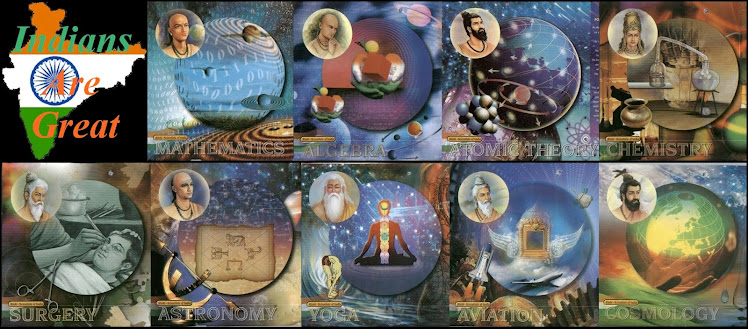Balbir Punj
Pakistan is caught in a vortex of jihadi violence for which it has only itself to blame. A country founded on the ideology of hate couldn’t have fared any better.
The recent spate of violent incidents in Pakistan has left the uninitiated, particularly the peaceniks, shocked, startled and dazed. The internecine war between various jihadi groups in the name of Islam continues unabated. Fundamentalists are also targetting what remains of religious minority communities, particularly Hindus, in Pakistan. In the process, the country is falling apart and is being increasingly seen as a failed state by the rest of the world.
The seeds of the spiralling violence were sown in the very ideology which led to Pakistan’s creation. The demand for an independent Islamic state in the Indian sub-continent was fuelled by two factors — pride in their past among Muslims and their fear of the future in a Hindu-dominated India.
The Muslim elite of pre-partition India that provided leadership to the Muslim masses was caught in a time warp and dreamed of reliving the Mughal glory. After the departure of the British, the prospects of competing with the Hindus (whom they had ruled) in a democratic set-up as equals frightened them. British imperialists and Indian Communists helped the Muslims to divide India.
Hate drove the Muslim League in the 1940s and led to the birth of Pakistan. In those days, it was hatred towards Hindus and Sikhs. After the creation of Pakistan, successive regimes in Pakistan have survived on hate — the objects of their hatred have changed over the decades. In a sense, hate unites the idea and the ideologues of Pakistan.
Mohammed Ali Jinnah, a non-practising, Westernised Muslim, did not get the support of his community so long as he was secular. After his historic split with the Congress and the Muslim League’s adoption of the two-nation theory, he emerged as the ‘sole spokesman’ of the sub-continent’s Muslims. Jinnah articulated what his new-found constituency wanted him to say; hence his denunciation and repudiation of India’s age-oldvalues of universal brotherhood and religious pluralism.
Jinnah’s concept of a Muslim majority ‘secular’ Pakistan was consistent with the aspirations of the Muslim masses who had forced partition on India to realise their dream of acquiring for themselves a ‘land of the pure’. It stood to logic that in such a land there could not be any space for the ‘non-pure’. The cleansing of the religious minority communities is rooted in this perception of Pakistan among Pakistanis. With each step in militarising Pakistan came the strengthening of its jihadi ideology and the institutions that have fuelled hatred at home and abroad.
This is best exemplified by civilian rulers and military dictators competing to prove who is a stronger defender of Islam. Zulfiqar Ali Bhutto stumped the Generals after the break-up of Pakistan and the birth of Bangladesh, and promised an ‘Islamic Bomb’. Later, he was sacked and hanged by General Zia-ul-Haq who became Pakistan’s most rabid military ruler. Gen Zia then set about the task of Islamising Pakistan and creating a social, economic and political order in which only fanatics could survive.
Today, the Pakistani military sets the terms and the mullahs define the socio-political agenda for the Government to follow. The military and the mullahs compete as well as co-operate to be the effective rulers of the country. As a result, Pakistan’s so-called ‘civil society’, which was in the forefront of the movement against General Pervez Musharraf, has now gone silent.
The nature of the killings and the Pakistani Government’s helplessness in the face of this upsurge of Talibani terror explain the predicament of that country. The military that funds part of the mullah-inspired militancy uses it to scare away the Americans who have to depend increasingly on the military leadership as a counter-balance the mullahs. All the stakeholders in Pakistan seem to be investing in violence and disorder as the Americans, who need Pakistan to support their operations in Afghanistan, wring their hands in despair. Meanwhile, Pakistan descends into deepening chaos.
What is not only surprising but also alarming is that in our own country neither Muslim leaders nor pseudo-secularists who pander to the orthodoxy and shut their eyes to the jihadi mindset do not seem to be interested in drawing any lessons from the developments in Pakistan.
Islam is a minority religion in Europe but decades of pseudo-secularists ignoring the jihadi mindset has resulted in a serious threat of terrorism overwhelming the elected Governments and undermining the liberal societies of Britain, Germany, France and other European nations. Mr David Cameron in Britain, Mr Nicholas Sarkozy in France and Ms Angela Merkel in Germany are now loath to praise multiculturalism that has become a convenient cloak for Islamic fanaticism and Muslim separatism. There is greater appreciation now in Europe of the problems posed by exclusivism and bigotry in the name of faith.
But in India nothing has changed. We still continue to treat Muslims as an exclusive community and their institutions as beyond Government’s control although they are funded by the public exchequer and with taxpayers’ money. A case in point is the absurd designation of Jamia Millia Islamia, a Central university funded by the Government of India, as a minority institution. That this negates the urgent need for liberal, cosmopolitan centres of learning is of no consequence to those who promote Muslim exclusivism. This in turn has led to the growth of fanaticism among a section of India’s Muslims spread across the country. For instance, the 80 absconding SIMI activists come from different States.
It is for the Muslim leadership and secularists to answer the question why the jihadi mindset finds empathy in their community in several districts of the country. Azamgarh in Uttar Pradesh, the Malabar region of Kerala, the Kashmir Valley are some of the places where it is most evident.
Meanwhile, life has come full circle for Pakistan. Hate is a poor glue to keep people together.


No comments:
Post a Comment